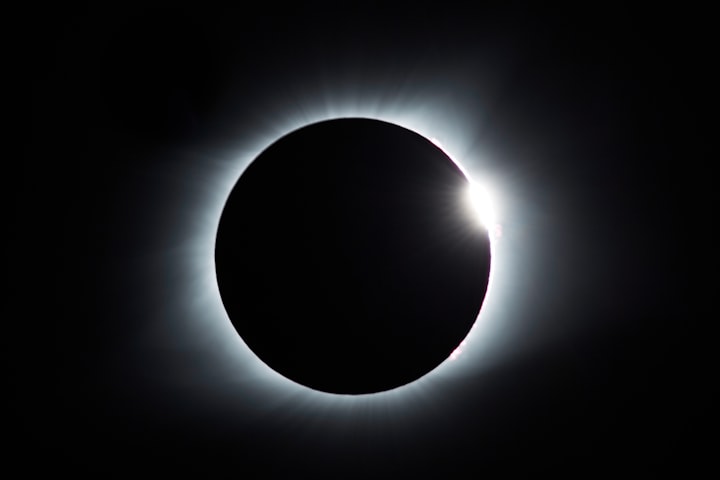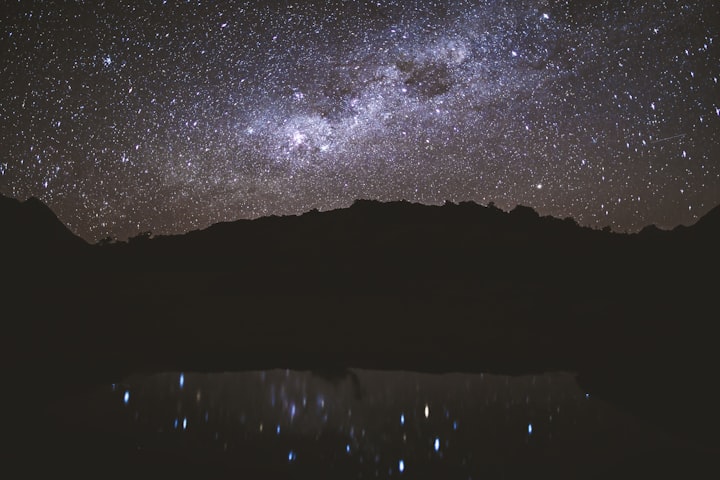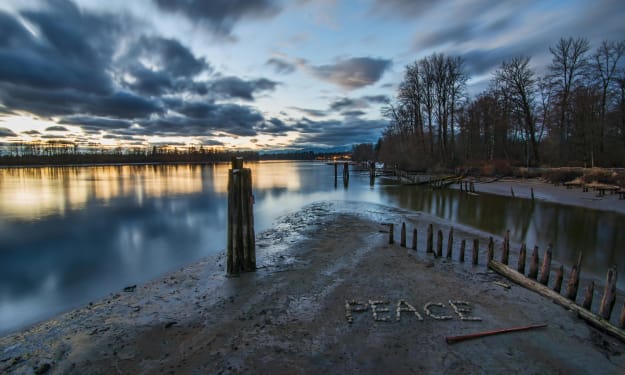Eclipse Thoughts
The experience of seeing the eclipse in totality is truly unforgettable.

I. Chasing the Eclipse
A six hour drive for a four minute moment?
When my husband asked if I wanted to take a road trip to view the solar eclipse in totality, there was no other answer but “yes.” While I’d experienced other solar eclipses–a few in my childhood, one in my young adulthood, one just seven years ago–I’d never seen one the way others had told me they were meant to be seen.
“You won’t believe it,” I’d been told.
We decided to test that testimony.
Our trip to totality took us to Russellville, Arkansas–a town a little over an hour north of Little Rock and at the foothills of the Ozark Mountains. The town of 30,000 was six and a half hours from our Birmingham, Alabama home and, we’d read, was ready to greet visitors like us and from far-flung corners of the world.
There would be festivals and special events in its streets; strangers would be welcomed, and there would be a place for all of us to view the eclipse from one of the spots smack dab in the middle of the route of totality.
We’d be able to see the moon cover the sun completely; when that happened, we’d also see things very rarely seen by humans–the sun’s corona, chromosphere, prominence, Bailey’s beads (what looks like beads “popping on and off” the edge of the sun), and the moon’s umbra.
I’d never heard of these terms, and yet I became enamored with them in the week ahead of our trip. Terms like umbra–which causes the moon to appear larger than the sun (although it’s 400 times smaller)--became fascinating, and I eagerly embraced the idea of becoming an umbraphile.
An umbraphile, according to the American Astronomical Society, is “a person who will do almost anything, and travel almost anywhere, to see totality. Also called an eclipse chaser.”
To chase our first total eclipse, we first had to find a place to stay. After finding that hotels cost at least five times their usual rate, we settled on a lakeside campsite where we could pitch a tent.
My husband is an enthusiastic camper (he was an Eagle Scout back in the day), while my daughter and I usually prefer the convenience of a hotel or home from Airbnb.
We, though, were up for the challenge–and, besides, being outside and connected to nature is the perfect option if you’re attempting to be an umbraphile. (Right?)
Once in Arkansas, we explored nearby Russellville (and its quaint downtown, independent bookstore, fantastic restaurants, and the special vendors/booths/activities set up specifically for the eclipse), but spent most of our time settling in lakeside.
We sat on the lake’s pier, guesstimating where the sun would be at its height the next day; talked with fellow campers; met with other travelers while waiting in line for the one (yes, one!) bathroom on site, and wondered at the fact that our new neighbors had traveled from California, Michigan, and Canada (and, assuredly, from many other places from around the nation and globe); and reveled in the joy that the tent-dwellers behind us had with their party music and hula hoop light shows.
The atmosphere was electric and anticipatory.
We awoke the morning of the eclipse, with our anticipation growing. Many of us were first-time totality viewers (eclipse virgins, I guess you might say), while others were veterans–their telescopes and special cameras and stories telling us that we were in for a treat.
We talked with a few who tried to prepare us for what was to come.
As the hours and then minutes crept by, we asked each other out loud: Was it going to live up to all of this expectation?
II. Two Haiku
Moon covers the sun
I’m lost in the vastness, and
My inconsequence
Moon covers the sun
I’m lost in the beauty, and
My holy value
III. An Eclipse Acrostic
Evaporating, disappearing, hidden.
(Can someone explain this to me?)
Luminous, radiating, wondrous.
(I’m trying hard to understand.)
Perhaps my eyes can see, but my
sight (real sight) is limited.
Experiences like this are hard for words, even for those who live in them.
IV. An Unforgettable View
There are certain things in life that live up to expectations.
Cheesecake from New York City. U2 in concert. Avengers: Endgame. The Grand Canyon. Motherhood.
In all honesty, though, I didn’t know what to expect from the eclipse that day.
Those sights I was destined to see–the umbra, corona, bailey’s beads–would they live up the hype? Would I even appreciate what I was seeing?
The morning of the eclipse dawned chilly, but sunny. The sky above was clear of clouds, and you could feel a rumble of excitement throughout the camping area. The crowds had gotten bigger since the night before, and a sense of bubbling joy filled the space. By the time 12:33 rolled around, I felt a bit antsy–like the way you feel the night of a first date, waiting for the knock on the door.
And then it was time.
Glasses on.
12:33 p.m.: the first sliver of the moon appeared across the bottom right of the sun.
Over the next hour: the moon gradually pushed itself across the sun's surface. It crawled and inched its way, as we followed a pattern. We'd crane our necks, holding on to our paper glasses for as long as we could; then we'd take them off and take a rest by looking at the real world on the ground. The ritual grew in importance, until...
1:50 p.m.: the moon covered the sun entirely, and we too our glasses off.
The air around us felt different; daytime turned to deep dusk; insects chirped; a calm settled over the land.
And yet, the joy of those around us was audible. We were bound as fellow humans to something so amazing that we were awe-struck and exuberant.
The darkness, the quiet, the human hoops and hollers, were no match for the fact that we were--for four minutes and eleven seconds--able to look directly at the sun.
It humbled me to think that in my entire 55 years (since birth, for more than 22,000 minutes), I’d never seen the sun with my naked eye.
The sun always shone brightly, its rays ruling our Southern summer days. It looked down upon childhood days, vacation days, wedding days, hot-humid-sticky-everyday days. And on cold days, it provided us our only relief; it gave us a lifeline, to know we'd make it through the season.
But, through it all--every single moment of daylight--I shielded my eyes from its rays. I had never looked into its face like this.
My visceral reaction was amazement. There's just no other word for it.
I looked directly into the eclipse for the full four minutes and 11 seconds. I couldn't tear my eyes away from it.
Except for one moment, when I looked behind me at my husband and my daughter and the hundreds of others gathered around me.
And I felt a camaraderie.
For I knew that they certainly were feeling the very same thing.
We were bonded.
We were bonded as humans.
We were bonded as humans by amazement.
As the sun pushed its way back into domination and the moon was relegated to its normal role, I felt a bit of a letdown. Things were going back to normal.
I knew, though, that I'd never feel quite normal again. I'd experienced a once-in-a-lifetime moment (unless I could somehow become a true umbraphile, which was unlikely).
We packed up our tent, our things, ourselves and ventured back into the real world.
A six hour drive for a four minute moment?
Absolutely worth it.
About the Creator
Cheryl Wray
I'm a trained journalist who now dreams of writing fiction.






Comments
There are no comments for this story
Be the first to respond and start the conversation.